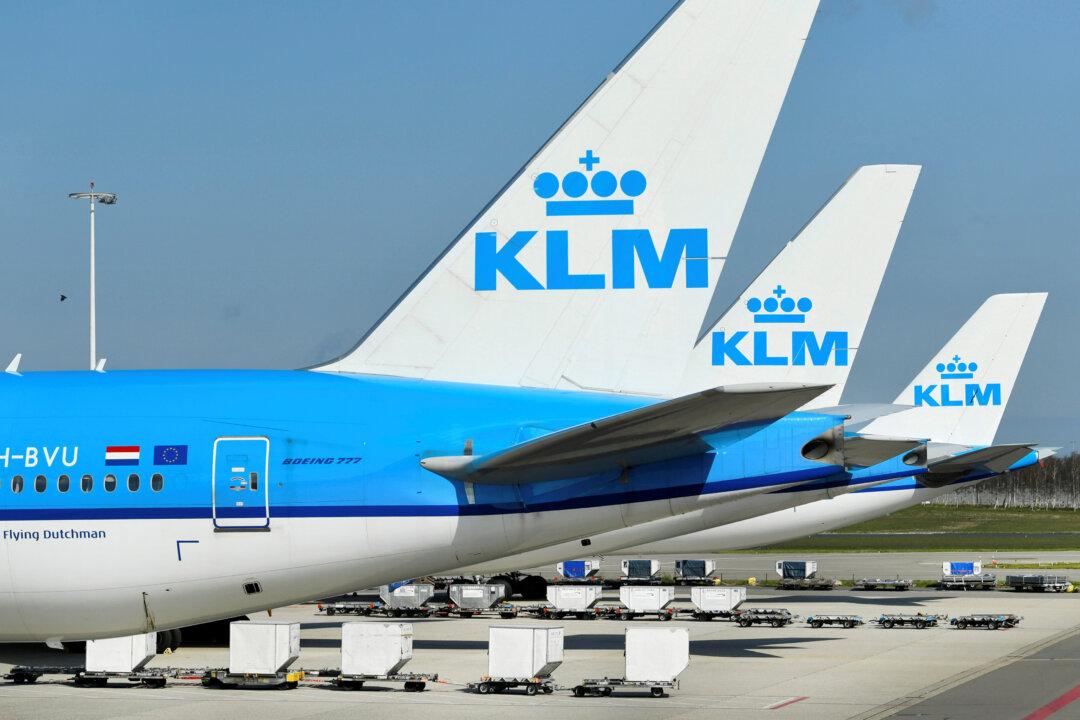KLM Royal Dutch Airlines called on the European Union to take measures to counter “unfair” competition from Chinese airlines.
“Europe can at least look at how we can prevent that unfair playing field by pricing it or looking at it in a different way,” KLM CEO Marjan Rintel told Dutch TV WNL on Oct. 7.




